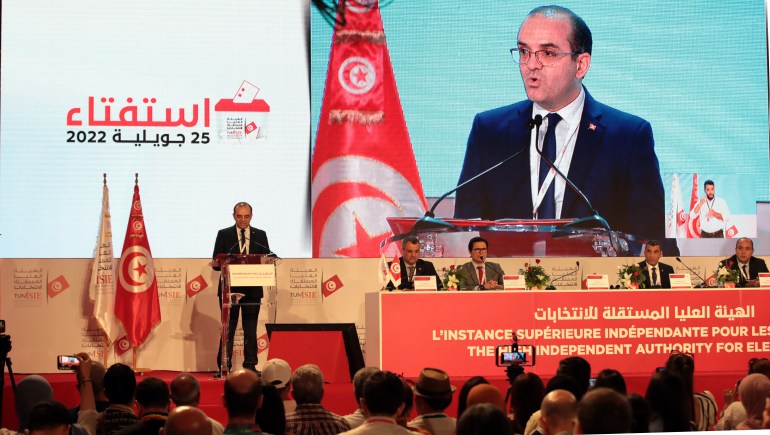A statement by the Tunisian Ministry of Foreign Affairs said that the Chargé d'Affairs at the US Embassy in Tunis, Natasha Francesci, was summoned to inform her of an official protest against the statements of the US Secretary of State and the designated ambassador regarding the political track in Tunisia.
The statement added that Franceski was informed of Tunisia's deep surprise at the US statements, which "do not reflect the reality of the situation in Tunisia and contradict the principles of the Vienna Convention on Diplomatic Relations."
US Secretary of State Anthony Blinken called for comprehensive and transparent reform in Tunisia to restore the confidence of those who did not participate in the constitutional referendum, and stressed that his country shares many Tunisians' concerns that the process of drafting the new constitution has limited the scope of real debate.
Earlier, in response to the US statements, Tunisian President Kais Saied affirmed his rejection of any form of interference in his country's internal affairs. In his meeting with Foreign Minister Othman Al-Jarandi on Friday, Saied stressed that Tunisia is a free, independent and sovereign country, and that its sovereignty and independence are above all considerations.
Last Tuesday, the head of the Electoral Commission, Farouk Bouaskar, said that the draft constitution had the confidence of 94.60% of the votes of 2,630,944 voters out of 9,278,541 voters (30.5% of those who registered).
The referendum is a link in a series of exceptional measures that President Qais Saeed began to impose on July 25, 2021, including dismissing the government and appointing another, dissolving the Judicial Council and Parliament, issuing legislation by presidential decrees, and early parliamentary elections to December 17.
Several major Tunisian political forces rejected the results of the referendum - such as the National Salvation Front, the Ennahda Movement and the National Campaign to Overthrow the Referendum (a coalition of 5 leftist parties) - on the grounds that 75% of the Tunisian people did not participate in the referendum on the new constitution.
Several parties and organizations questioned the reliability of the Electoral Commission’s figures (European News Agency)
accusations
In turn, the opposition Labor Party in Tunisia accused the US State Department of exploiting what it described as the farce of the failed referendum, to resume its blatant interference in Tunisia's affairs, as he put it.
The Labor Party held President Said responsible for the exacerbation of foreign interference in Tunisia and the exacerbation of manifestations of normalization, he said. The party also accused Said of failing to respond to the American and European interventions, which he described as scandalous.
On the other hand, the Popular Current Party (a nationalist supporter of President Kais Saied) expressed its rejection of what was stated in the US State Department's statement regarding the referendum on the new constitution, and considered it a blatant attack on the will and sovereignty of the Tunisian people, as he put it.
appeals
Meanwhile, the Tunisian "I Watch" organization announced that it had filed an appeal with the Administrative Court in order to annul the results of the referendum on the draft constitution announced this week.
The organization indicated in a short post on its Facebook page that the appeal was submitted to the Administrative Court in the capital, Tunis, on behalf of one of the natural persons who deposited a permit to participate in the referendum campaign. of serious abuses.
The spokesman for the Administrative Court, Imad Al-Ghabri, had confirmed that the electoral law grants only the participants in the referendum campaign the right to challenge its results, and prevents it from the boycotting parties, adding that if the Administrative Court receives appeals, the total period for consideration in the primary and appellate litigation phases is 30 days.

